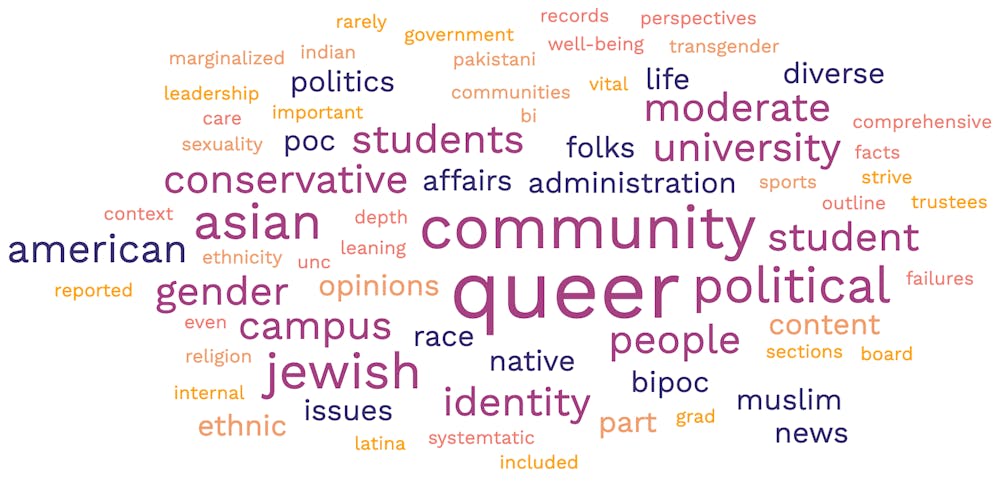An anonymous survey of the greater Chapel Hill community revealed varying viewpoints regarding The Daily Tar Heel’s representation of race, sexual orientation and gender identity.
The Daily Tar Heel collected 529 responses between March 6 and March 24 via QR codes posted in physical copies of the paper and around Chapel Hill; link distribution from University and DTH newsletters; and in-person survey administration on Franklin Street and campus. Nearly 90 percent of respondents were University students, with the remaining percentage being community members.
Of these participants, 54 percent were people of color and 43 percent were non-Hispanic white individuals —with the remaining participants preferring not to say. Sixty-three percent identified as straight, while 37 percent identified as non-straight. Six percent identified as transgender, intersex or gender nonconforming.
The general public opinion of the paper was largely positive. However, separating respondents by race, gender and sexuality revealed disparities between subgroups for questions about representation.
Identity
Respondents were asked to rate the following statement using the Likert scale — strongly disagree to strongly agree — "The Daily Tar Heel writes stories that represent my identity/identities." Sentiment toward this statement varied across different social identities. In general, white and cisgender individuals responded more positively to this statement than people from other races and gender identities.
Transgender, intersex and gender-nonconforming (TIGNC) individuals expressed the most disappointment for the representation of their identity in the paper, as almost half of all respondents indicated disagreement with the above statement. Only 16 percent of their cisgender respondents expressed disagreement.



